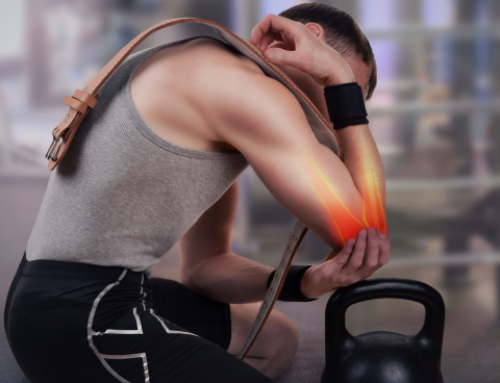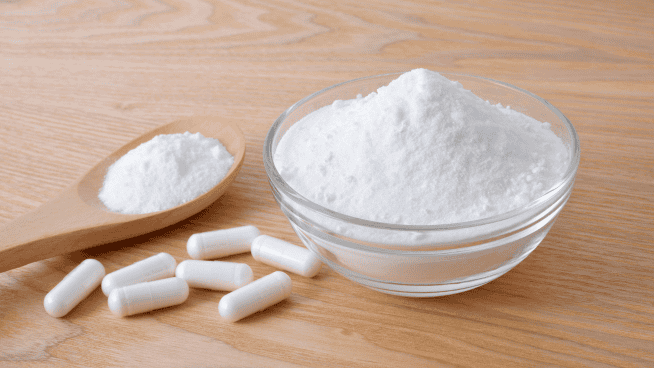Questions Every Athlete Should Ask Their Physical Therapist
Participation in sports, at times, can result in an injury, pain, or impairment. There are times when the student-athlete can heal independently or with the support of a coach and athletic trainer. Still, then there are situations when physical therapy is required. If that happens here are questions every athlete should ask their physical therapist.
Physical therapy includes a process of evaluating and diagnosing an injury, setting up recovery goals, outlining a process to heal, and hopefully a full return to athletic activity. Following an injury, a student-athlete will work with a physical therapist (PT) or physical therapist assistant (PTA), along with an athletic trainer (if available at their school).
Questions Every Athlete Should Ask Their Physical Therapist
Why Does Physical Therapy Take Longer Than I Thought?
Recovery from an injury or surgery will take longer than you think. Your therapist should provide you with a good estimate and timeline, but ask questions about the recovery phases, progressions, and timelines. Your therapist can explain the issue and reasons why some types of injuries or body tissues take longer than others to heal.
Why Do I Have To Do These Exercises?
You will be given a home exercise program with therapy. These exercises at times, may seem simple and boring. Your therapist should explain each one to you and why you should be doing them. If you do not understand the benefit of these or why they were chosen, ask your therapist. Understanding and performing your home exercise program is one of the biggest components of your recovery and return to sport.
What Does My PT Expect Of Me?
Your rehabilitation process will require your active participation. This means scheduling appointments, not missing appointments, and showing up on time ready to work. There will be a list of restrictions and precautions, along with a home exercise program. You will typically meet with your therapist once or twice a week, but the key to progression and return to sport is compliance. It is important you follow the outlined restrictions and should perform the home exercise program as outlined. If you fail to follow this, your recovery can be delayed, you may face re-injury, and you may not be ready in time to return to the start of the season.
Why Does PT Hurt?
Recovery from an injury, illness, or surgery can be uncomfortable. And no two individuals respond to, or handle, pain the same way. Physical therapy is a gradual process aimed at eliminating, reducing, or managing pain. It is OK to feel some discomfort or fatigue with your home exercise program or your therapy session. Nudging into discomfort can be expected, but you should notify your rehab team if an activity significantly increases pain.
Why Did My Teammate Recover Faster Than I Am?
No two bodies are the same. And yes, while there is a general timeline and protocol for healing, many other factors weigh in. Recovery includes physical therapy and other factors such as rest, nutrition, genetics, and others. It is OK to ask how you are doing compared to the standard or others.
Why Am I Not Improving?
There are times when recovery may not go as planned. Some student-athletes may withhold information from their therapist, coaches, and doctors. They do not report pain or issues with exercises and progressions. If something does not feel right, or is not going as planned, the student-athlete should ask questions. If there are issues with the recovery process, they can be addressed and dealt with. Failure to ask the scary questions could lead to bigger issues down the road, or the inability to return to sport.
Physical therapy treats the current injury and works to prevent future injuries and promote a long and healthy athletic career. The better you understand the rehab process and your therapist’s roles and yourself, the better your rehabilitation process. If you do not understand something, do not be afraid to ask.
Read More
- 3 Reasons Why You Should Consider Seeing a Physical Therapist
- 4 Sprained Ankle Rehab Exercises
- How to Prevent a Pulled Hamstring
RECOMMENDED FOR YOU
MOST POPULAR
Questions Every Athlete Should Ask Their Physical Therapist
Participation in sports, at times, can result in an injury, pain, or impairment. There are times when the student-athlete can heal independently or with the support of a coach and athletic trainer. Still, then there are situations when physical therapy is required. If that happens here are questions every athlete should ask their physical therapist.
Physical therapy includes a process of evaluating and diagnosing an injury, setting up recovery goals, outlining a process to heal, and hopefully a full return to athletic activity. Following an injury, a student-athlete will work with a physical therapist (PT) or physical therapist assistant (PTA), along with an athletic trainer (if available at their school).
Questions Every Athlete Should Ask Their Physical Therapist
Why Does Physical Therapy Take Longer Than I Thought?
Recovery from an injury or surgery will take longer than you think. Your therapist should provide you with a good estimate and timeline, but ask questions about the recovery phases, progressions, and timelines. Your therapist can explain the issue and reasons why some types of injuries or body tissues take longer than others to heal.
Why Do I Have To Do These Exercises?
You will be given a home exercise program with therapy. These exercises at times, may seem simple and boring. Your therapist should explain each one to you and why you should be doing them. If you do not understand the benefit of these or why they were chosen, ask your therapist. Understanding and performing your home exercise program is one of the biggest components of your recovery and return to sport.
What Does My PT Expect Of Me?
Your rehabilitation process will require your active participation. This means scheduling appointments, not missing appointments, and showing up on time ready to work. There will be a list of restrictions and precautions, along with a home exercise program. You will typically meet with your therapist once or twice a week, but the key to progression and return to sport is compliance. It is important you follow the outlined restrictions and should perform the home exercise program as outlined. If you fail to follow this, your recovery can be delayed, you may face re-injury, and you may not be ready in time to return to the start of the season.
Why Does PT Hurt?
Recovery from an injury, illness, or surgery can be uncomfortable. And no two individuals respond to, or handle, pain the same way. Physical therapy is a gradual process aimed at eliminating, reducing, or managing pain. It is OK to feel some discomfort or fatigue with your home exercise program or your therapy session. Nudging into discomfort can be expected, but you should notify your rehab team if an activity significantly increases pain.
Why Did My Teammate Recover Faster Than I Am?
No two bodies are the same. And yes, while there is a general timeline and protocol for healing, many other factors weigh in. Recovery includes physical therapy and other factors such as rest, nutrition, genetics, and others. It is OK to ask how you are doing compared to the standard or others.
Why Am I Not Improving?
There are times when recovery may not go as planned. Some student-athletes may withhold information from their therapist, coaches, and doctors. They do not report pain or issues with exercises and progressions. If something does not feel right, or is not going as planned, the student-athlete should ask questions. If there are issues with the recovery process, they can be addressed and dealt with. Failure to ask the scary questions could lead to bigger issues down the road, or the inability to return to sport.
Physical therapy treats the current injury and works to prevent future injuries and promote a long and healthy athletic career. The better you understand the rehab process and your therapist’s roles and yourself, the better your rehabilitation process. If you do not understand something, do not be afraid to ask.
Read More
- 3 Reasons Why You Should Consider Seeing a Physical Therapist
- 4 Sprained Ankle Rehab Exercises
- How to Prevent a Pulled Hamstring










